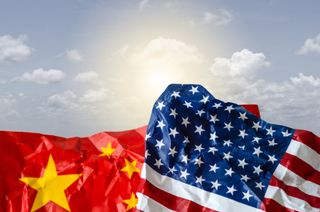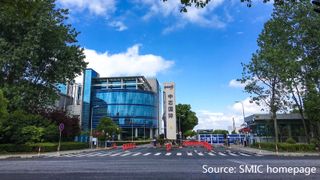US-China Tech Export Approval Rate Proof of Policy Failure, Says Ex-Pentagon Analyst
In 2021, 88% of tech exports to China sailed through the US approval process.

Strident-sounding U.S. tech sanctions on China don't bite very hard. Official data from the Commerce Department shows the U.S. approves almost all tech export requests to China, according to a new Wall Street Journal report.
The data reveals that, in 2020, of the <0.5% of exports to China that required a license to be exported, 95% were approved. In 2021, the approval rate dropped to 88% — meaning nearly nine out of 10 tech export licenses were still greenlit.
Remember, the purpose of these sanctions is to deny China access to technology which could be purposed (or re-purposed) for use in military equipment. This implementation is falling by the wayside, according to critics who have seen the figures. Important U.S. semiconductors, AI technologies, and even aerospace components are still getting approved for export, according to the WSJ.
A prominent critic of these lax controls is Steve Coonen, a former Pentagon China export controls analyst. Coonen, who resigned from his position at the Pentagon nearly a year ago, reckons the figures highlighted by the WSJ are evidence of significant policy failure.
The crux of the issue seems to stem from the pressure on the Commerce Department to carry out its central purpose — promoting U.S. exports — and how this currently overwhelms the question of export controls (particularly with regard to China).
Not everyone believes the current policy is worth pushing. Some are worried U.S. export controls will damage U.S. businesses while providing clear opportunities for rivals in high-tech nations such as Japan, Germany, and South Korea.
The WSJ report references the findings of U.S. Rep. Michael McCaul of Texas, which highlight the fact that blacklisted Chinese companies such as Huawei and SMIC were issued with more than $100 billion worth of export license between November 2020 and April 2021. Blacklisted entities aren't automatically denied exports, they just have to apply for a license — which is often granted. It is also thought non-blacklisted entities might be used to get tech imports into China, which are then diverted to blacklisted companies.
Stay On the Cutting Edge: Get the Tom's Hardware Newsletter
Get Tom's Hardware's best news and in-depth reviews, straight to your inbox.

SMIC has been shipping 7nm chips, based on tech copied from TSMC, since 2021. The U.S. export controls process was supposed to have been a significant hurdle to China getting hold of advanced semiconductors (and the means to produce them).
Successive U.S. administrations have fiercely gnashed their teeth at China, but the trade figures suggest this policy is a lot of talk rather than something that has ever been strictly implemented.

Mark Tyson is a Freelance News Writer at Tom's Hardware US. He enjoys covering the full breadth of PC tech; from business and semiconductor design to products approaching the edge of reason.
-
TJ Hooker Reply
I take it you didn't read the article? The proportion of export licenses to China that were approved actually went down (albeit only a bit) in 2021 (i.e. after Biden took office), compared to 2020.Integr8d said:There’s a reason he’s known as Beijing Biden. -
bit_user Reply
And what reason is that? Did you not read how the approval rate went from 95% in 2020 (i.e. under Trump) to 88% in 2021 (under Biden)? And if he were such a friend of China's, why didn't he drop any of the trade tariffs or take a softer line on Taiwan, Hong Kong or Xinjiang?Integr8d said:There’s a reason he’s known as Beijing Biden.
Also, government bureaucracy is a big ship to turn. You can't just fire and replace everybody on a dime. New cabinet members have to be confirmed (which Mich McConnell dragged his feet on), and then it takes them time to settle into their job and start making changes in their departments.
Finally, the CHIPS act is the first real legislation to invest in US production and competitiveness in years. And it forbids companies receiving funds from establishing any new production in China.
Most Popular


